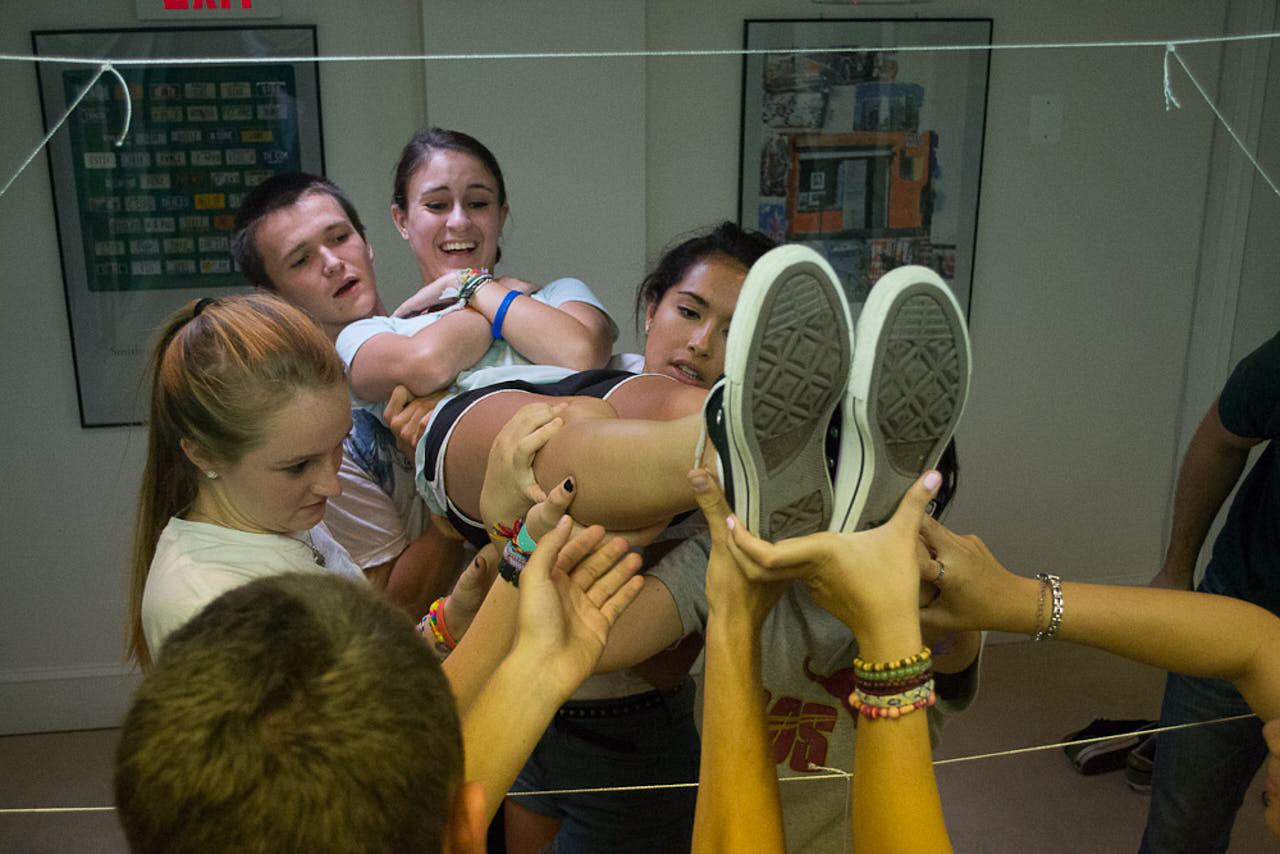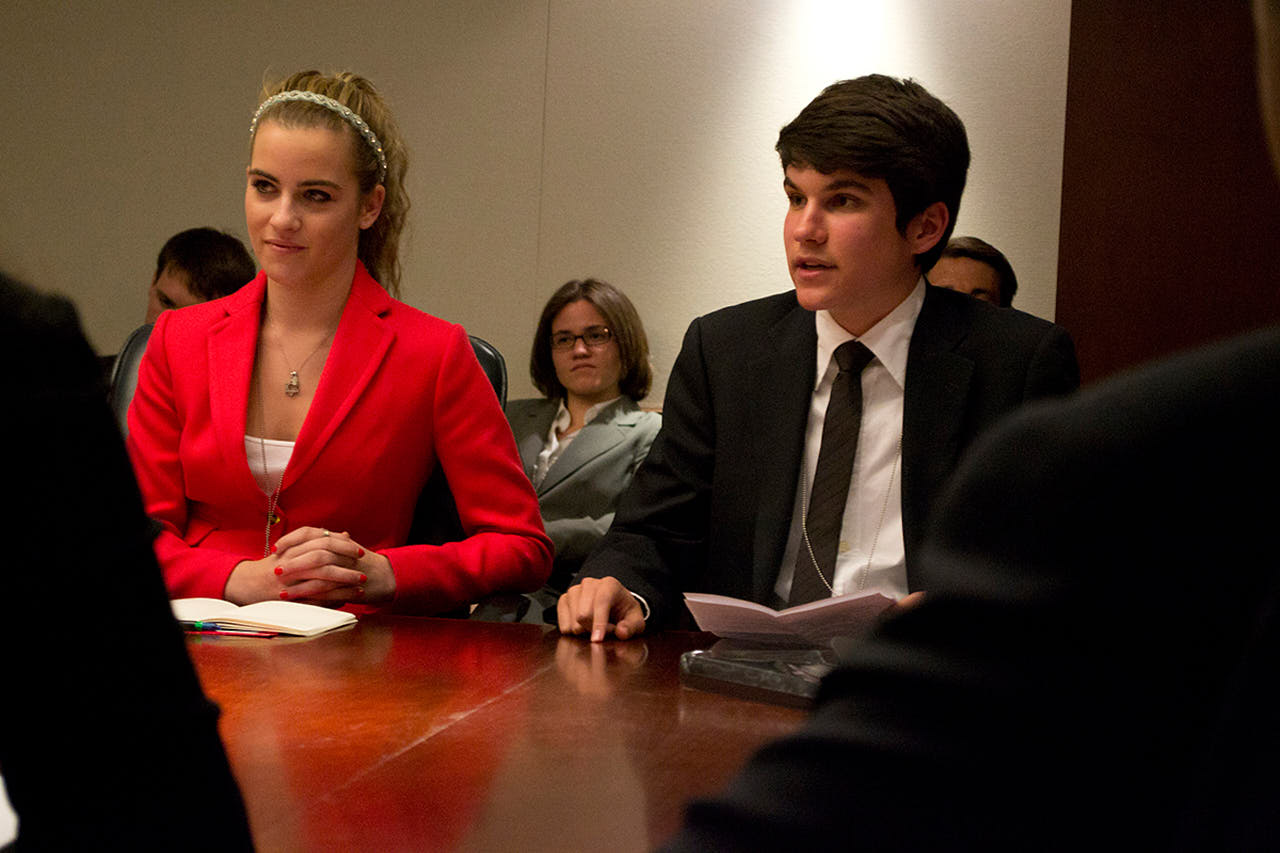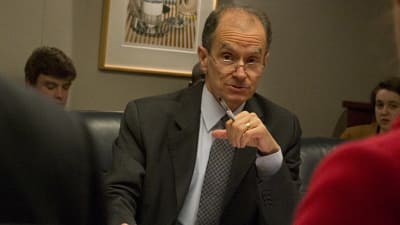Spring 2012 presents capstone policy document to Ambassador Daniel Fried, Special Envoy to Guantanamo Bay
Each semester our students select one issue of international significance and draft a collaborative policy document that responds to that dilemma. In the past, students have tackled Mexican Drug Cartels, Somali Piracy, Sex Trafficking in Thailand, Conflict Diamonds in Zimbabwe, and Burma. This semester’s cohort chose one of history’s thorniest challenges: Guantanamo Bay.They began their journey with a day-long trip to the George Washington University Library, where they learned library research techniques from David Ettinger, one of the University’s top research librarians (Ettinger has spoken with every SEGL group since the school’s inception, earning top marks every time). In groups, they explored the history and current situation, legal topics, political considerations, humanitarian issues, and specific detainee challenges.
Before delivering their rough drafts, they presented initial recommendations before a faculty review board (which simulated a top secret Presidential task force prepping for a visit to Guantanamo Bay). This review board (a notoriously difficult part of the SEGL experience) exposed opportunities for further exploration and clarification. One of those areas was the difficult legal issues facing everyone who attempts to resolve the situation.

To help with that process, we invited Lieutenant Colonel Jon S. Jackson to SEGL. Jackson, who is currently defending two “Gitmo” detainees, was able to answer a host of complex questions with passion and charisma.
On Monday afternoon, we trekked to the State Department for our final presentation, to Ambassador Daniel Fried, the Special Envoy to Guantanamo Bay. Fried, who is charged with closing the Gitmo prison, brought along Attorney Adviser (and former Rhodes Scholar) Tess Bridgeman and Brock Johnson, one of his four principal advisors. The session was intense, as five students spoke for the group and fielded penetrating questions from Fried and his team.

Before Fried began giving feedback, he asked if the students wanted to hear his real opinion (which would require the students to keep the meeting confidential) or his public views. All of the students asked for his real opinion, and the fireworks started to fly. (Because the meeting was off the record, we cannot share more. But here is one memorable quotation from Fried: “Don’t decide to avoid doing the right thing just because it is hard.”)
After the session, the students made a momentous decision: they had more work to do. Carving out space for extra work over the next five days, they debated the feedback they received, researched additional information, created new solutions, and edited the new draft.
On Saturday afternoon, midway through English class, a cheer erupted in the residence halls. The document was finished.
It is available here.




